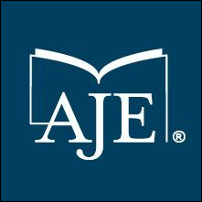Administrative Decentralization and Combating Covid-19:The Case of a South Indian State
Keywords:
central and state governments, decentralization, districts reorganization, education, lockdown, migrants, pandemic, public health, public institutions, rural-urban local bodiesAbstract
Decentralization is a vital strategy of governments the world over, tailored to eliminate the drawbacks of excessive centralization and promote the effectiveness of administrative systems. In India, administrative decentralization has been viewed as a crucial strategy for addressing the challenges of public service delivery. Several state governments have rationalized the jurisdictional areas of the local administrative units—the districts, planning bodies, local bodies, and special agencies.
The analysis reveals that the Covid-19 pandemic has taught us lessons. First, the crisis has exposed the multiple vulnerabilities of India’s development model very starkly in tackling the pandemics. Second, there is a desperate need to put in place a system of universal health care. Third, there are enormous opportunities to reorient our priorities to overcome the crises.
The south Indian state of Telangana experience, however, shows that measures initiated in 2016, i.e., territorial decentralization and other measures, inadvertently enabled the government to combat Covid-19 effectively. The field evidence reveals that the role of public institutions, particularly in healthcare, is unparalleled by private institutions in providing safety and basic services to people, thus putting administrative decentralization and public health institutions on the national agenda once again for debate to restructure state/national administrative units.
References
Amit Basole (2020). ‘Reviving employment and livelihoods in India: Covid-19 and after’, Confederation of India Industries and Azim Premji University Report.
Amit Basole (2021). ‘Rural employment and the pandemic challenge’, 748 -Seminar, December, pp. 29-34.
Balaramulu, Ch (2020). ‘Administrative decentralization and challenges of arresting Covid-19: lessons from Telangana’, The Hans India, Hyderabad, 19, July.
Balwant Singh Mehta, Simi Mehta and Arjun Kumar (2021). ‘Covid-19 relief package-will central largesse help construction workers?’ Economic & Political Weekly, 55(37), pp. 45-46.
Biswaranjan Tripura, Thomas Malsom (2021). ‘Covid-19 and the everyday challenges of indigenous peoples of Tripura’, Economic & Political Weekly, LVI(47), pp. 35-37.
Cheema, G. S., & Rondinelli, D. A. (1983). ‘Implementation decentralization policies: an introduction’, in G. S. Cheema & D. A. Rondinelli (Eds.), Decentralization and development, policy implementation in developing countries (pp. 9-34). New Delhi: Sage Publications.
Dilip, T R, & Pratheeba J, Sunil Nandraj (2021). ‘India’s government health expenditure as the ratio to GDP Is It a fallacy?’ Economic & Political Weekly, LVI(48), pp. 21-25. Eryýlmaz, Bilal (2011). ‘Public administration’-Kamu Yönetimi, Okutman Publishing-Okutman Yayýncýlýk, Ankara.
Faiz Ahmed et al. (2021). ‘Population density and Covid spatial dynamics: a critical assessment of Indian districts’, Indian Journal of Public Administration, 67(3), September, special issue-Management of Pandemics, pp. 425-439.
Falleti Tulia G. (2004). ‘A Sequential Theory of Decentralization and Its Effects on the Intergovernmental Balance of Power: Latin American Cases in Comparative Perspective’, Working Paper-314, July 2004.
Gopalguru (2020). ‘Covid-19 and a Just State?’ Editor ’s Desk, Economic & Political Weekly, LV(18), p.9. 2 May.
Government of India, (2020). Order No .40-3/2020-D date, 24.03.2020 and 1.5.2020 Guidelines on the containment of Covid-19 Epidemic measures to be taken by Ministries/ Departments of GoI, State/Union Territory Governments, New Delhi: Ministry of Home Affairs.
Government of Telangana Abstract (2016). ‘District administration formation/reorganization of the district, revenue divisions and mandals- district revenue (DA-CMRF) department GO. Ms. No. 250: date: 11.10.2016 Read:-1) GO. Rt. No. 367 revenue (DA-CMRF) department dated 22-08-2016.
————————— (2020). ‘Covid-19 - lockdown - relief measures to migrant workers’ - orders - revenue (DM.II) department G.O.Rt.No.13, order: dated: 30.03.2020.
————————— (2020). ‘Covid-19 – The epidemic diseases Act, 1897- lockdown orders’; General Administration Department G.O.Ms.No.45 Dated: 22.03.2020.
Grace Ngullie and Arib Ahmad Ansari (2021). ‘Impact of a pandemic on livelihood and food security: an empirical analysis of the PDS in Delhi’, Indian Journal of Public Administration, 67(3), September, special issue -Management of pandemics, pp. 314-325.
James W. Fesler (1965). ‘Approaches to the Understanding of Decentralization’, Journal of Politics XXVII, August, p 536.
Jocelyne piret and Guy Boivin (2021). ‘Pandemics throughout history’, Front Microbiology, Online Publication, January 15.
Margaret Harris, (2022). ‘Covid-19 pandemic is far from over’, Economic Times’, March, 18, Hyderabad.
Meenakshisundaram, S. S. (1994). ‘Decentralization in developing countries. New Delhi: Concept Publishing.
Michal Illner (1977). ‘Territorial decentralization - a stumbling block of democratic reforms in east-central Europe’ Polish Sociological Review, No. 117 pp. 23-45.
Nand L. Dhameja et al. (2021). ‘Pandemics management: effects on Indian economy- reflections for policy and action initiatives’, Indian Journal of Public Administration, 67(3), September, special issue -Management of Pandemics, pp. 286-299.
Pratap C Mohanty, Jipson John Jaimon (2021). ‘Economic Impact of Covid -19-induced Lockdown on rural households’, Economic & Political Weekly, LVI(44), pp. 23-28.
Pushpa Singh (2021). ‘Management of pandemics: agricultural, food management and resilience during Covid-19’, Indian Journal of Public Administration, 67(3), September, special issue -Management of Pandemics, pp 324-336.
Radhika Kapoor (2020). ‘The unequal effects of the Covid-19 crisis on the labor market’, The India Forum, 27 July.
Reetika Khera and Rishabh Malhotra (2021). ‘Covid relief for the poor – too little, too late’, 748- Seminar, December, pp. 35-40.
Samar Nandha (2021). ‘How to look at the Covid-19 pandemic through climate governance’? Indian Journal of Public Administration, 67(3), September, special issue- Management of Pandemics, pp. 383-395.
Samuel, A, Chakraborty, G., & Joy, K. (2020). ‘Emerging governmentality and bio-politics of Covid-19 in India’, Economic & Political Weekly, 55(37), pp- 25-29.
Satyanarayana Adapa (2020). ‘Lessons from Nizam era in tackling epidemics’, Telangana Today, Hyderabad 15 April.
Saudamini Das, Ajit Mishra (2021). ‘Adequacy of social assistance schemes during the Covid-19 lockdown evidence from Delhi slums’, Economic and Political Weekly, LVI(5) , pp. 39-45. 18 December.
Tultul Biswas and Arvind Sardana (2021). ‘Education during the pandemic’, 748 Seminar, December, pp. 28- 34.
Urvashi Pareek and Nagendra Ambedkar Sole (2021). ‘Institutional responses to the management of Covid-19 crises: lessons from the Bhilwara and the Ramganj models of Rajasthan’, Indian Journal of Public Administration, 67(3), pp. 351-364, September, special issue-Management of Pandemics.
Vijayashanker, PS & Richa Kumar (2021). ‘The problem’, ‘the re-visioning the rural’, 748, Seminar, December, pp. 41-44.
Vinita Yadav and Sherin Jacob (2021). ‘Impact of lockdown on women domestic workers, ‘Indian Journal of Public Administration, 67(3), September, special Issue- Management of Pandemics, pp. 300-313.
World Bank (2008). ‘Decentralization in Client Countries: An Evaluation of World Bank Support (1990-2007)’ The World Bank, Washington, D. C. http://www1.worldbank.org/publicsector/decentralization/political.htm.
Yogesh Jain (2021). ‘The impact of Covid on health’, 748-Seminar, December, pp. 56-59.
Downloads
Published
Issue
Section
License
Copyright (c) 2025 ASIAN REVIEW OF PUBLIC ADMINISTRATION (ARPA)

This work is licensed under a Creative Commons Attribution-ShareAlike 4.0 International License.












